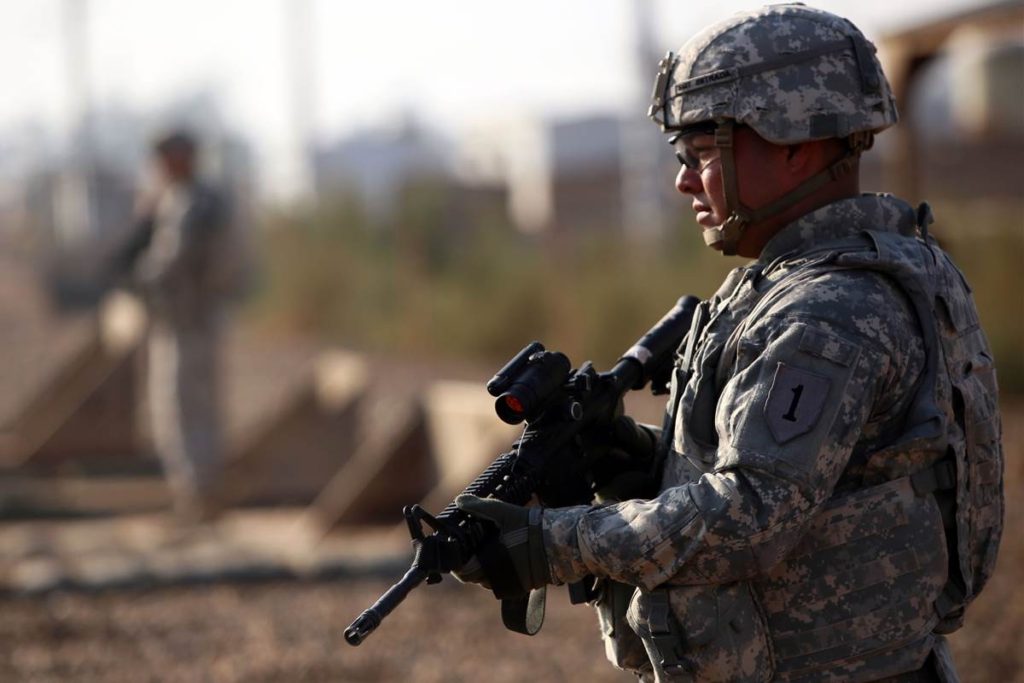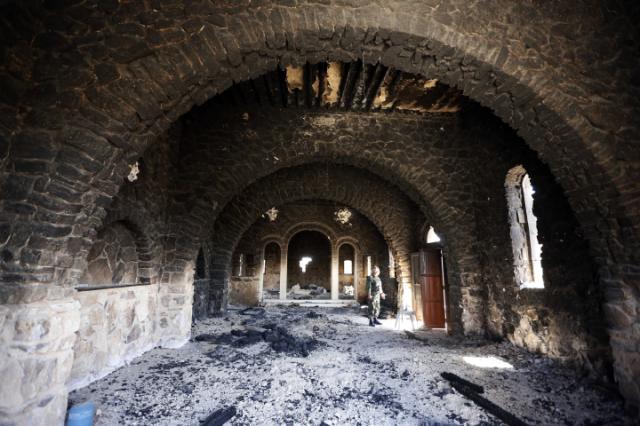
President Obama says he is expanding the U.S. military presence in Syria in order to keep up the “momentum” in the campaign against ISIS.
“I’ve decided to increase U.S. support for local forces fighting ISIL in Syria,” the president said today in a speech in Hanover, Germany, using an alternate acronym for the Islamic State. “They’re not going to be leading the fight on the ground, but they will be essential in providing the training and assisting local forces that continue to drive ISIL back.”
The president will deploy an additional 250 Special Operations Forces to Syria to assist local forces in their fight against ISIS. This adds to the 50 personnel aiding fighters in Syria, bringing the total number of US troops in the country to 300.
Obama to Send 250 Additional Military Personnel to Syria, Official Says
Obama encouraged his NATO counterparts to step up their counter-ISIS efforts, including increasing the air campaign in Syria and Iraq, providing trainers to help build up local forces in Iraq and providing greater economic assistance to Iraq.
“These terrorists are doing everything in their power to strike our cities and kill our citizens so we need to do everything in our power to stop them,” he said.
Before the speech, Deputy National Security Adviser Ben Rhodes stressed that while the troops will be in “harm’s way,” they are not being tasked with a combat mission.
“Obviously, any special forces troops that we deploy into Iraq or Syria are going to be combat-equipped troops. They may be in circumstances where they find themselves in harm’s way because these are dangerous places,” Rhodes told reporters today. “They’re not being sent there on a combat mission. They’re being sent there on a mission to be advising and assisting and supporting the forces that are fighting against ISIL on the ground.”
The United States is also ramping up its military presence in neighboring Iraq. Defense Secretary Ash Carter announced last week the deployment of an additional 217 troops to serve as advisers in Iraq, raising the total number of authorized military forces to 4,087.
The president’s decision comes before a security-focused meeting with German Chancellor Angela Merkel, British Prime Minister David Cameron, French President Hollande, and Italian Prime Minister Matteo Renzi. Rhodes said the president will encourage his European counterparts, both publicly and privately, to expand their commitment to fight ISIS.
“Everybody is in this fight,” Rhodes said. “We will do our part, but this will only succeed if we are working together as a coalition and as a global community to stamp out the threat of ISIL.”
The leaders will also discuss other global security concerns, including the refugee crisis, assisting a new government in Libya, and maintaining pressure on Russian President Vladimir Putin, who has been at odds with Western leaders over aggression in Ukraine and support for President Bashar al-Assad in Syria.
President Obama will urge European leaders to expand intelligence sharing as ISIS continues to pose a threat to their countries in the wake of the attacks in Paris and Brussels.


